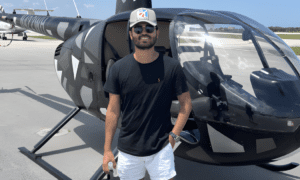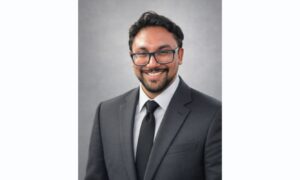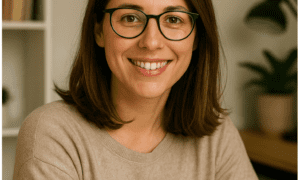Sustainability is the word on everybody’s lips. There’s no denying the need for positive change within consumerism. The statistics speak for themselves: Every 48 hours, a forest the size of New York City is destroyed. Every minute, the equivalent of one garbage truck of plastic waste is dumped into the ocean. The human desire for products and goods has infinitely contributed toward a growing ecological problem.
Over the past decade, there has been a major consumer demand for products that are not only high-quality and durable, but also sustainable. Between 2013 and 2018, 50% of consumer packaged goods (CPG) growth came from sustainably marketed products, according to NYU research. Despite this marketplace shift, there’s still a gap that needs closing. Here, entrepreneur and consumer products innovator Trevor Edwards shares his experiences of working on innovative product lines that meet these demands.
The Growth of Sustainable Consumerism
The impact that humans are having on the planet is increasingly difficult to ignore. While the notion of global warming was first introduced in the early 20th century, many of us treated it as nothing more than background noise. It was all too convenient to ignore the signs until they grew too large to block out. From forest fires and earthquakes to higher humidity and sea levels rising, the natural world is letting us know there’s a problem.
Back in the 1990s, I did some work around sustainability when I was working with a leading consumer products brand in Europe. The demand for sustainable products had long been obvious to those in the retail sector. However, when we delved deeper into this topic, the experts kept returning to the same worrying conclusion. While consumers understood the importance of making eco-conscious choices, the demand for sustainable goods wasn’t always there. The reason lay in the lower quality and higher price of products that carried the sustainable label.
The challenge here was that sustainable products simply weren’t delivering the same level of design or benefits as their counterparts. Faced with the choice of subpar products or those made using unsustainable means, most customers tend to choose the latter. Fortunately, times are changing for the better. As we grow to understand the importance of the impact we have, major brands are leading the way in sustainability.
Bridging the Gap Between Science and Products
While I’ve always had an entrepreneurial spirit, I’ve previously worked for some of the world’s leading consumer companies. Within my roles, I have had to constantly move with the times and embrace innovation at every turn. This ethos is what I’m taking into my journey as an entrepreneur. I have always been passionate about creating better products — sustainable products being a new level of better; the idea that we can solve this problem through design and scientific innovation fascinates me.
For that reason, my most recent endeavours have included sustainability at the core. I’m currently working on a new project for consumers who “explore life as an adventure” but also want to support the planet. The aim is to deliver the same level of luxury while ensuring that the products are not causing excessive amounts of harm to the environment. Facilitating that takes a certain amount of finesse. It’s a fine line to walk, but an important one.
Since scientific innovation is the key to sustainability in the world of retail, I often find myself working directly with the experts. At the same time adoption of the product by consumers is critical to success. I am trying to sit comfortably in the gap between these remarkable individuals, the products they create and the consumers we serve. That means assuming the role of middleman. Put simply, I am charged with taking complex information, identifying important benefits and making it as desirable as possible for consumers.
Needless to say, this is a learning process. It means working closely with some of the best minds in the industry and actively engaging in the conversations that matter the most. While none of us are 100% clued in when it comes to the issue of sustainability, it’s also about learning at every opportunity. Through my latest work, I am striving to do just that. In doing so, the end products will tick all of the right boxes.
The Takeaway!
The realms of sustainable consumerism are certain to carry on growing. We’ve already seen a market trend toward this and, thanks to more information than we’ve had before, it’s likely to continue in the same vein. With that in mind, it is sure to become more important than ever to delve into this area and learn as much as you can. That means reading up on the latest news, working with experts, and keeping your finger on the pulse. While the changes won’t take effect overnight, the more prepared we are, the better we will be able to meet demands.
About Trevor Edwards
Trevor Edwards is the Former President of a top-performing athletic brand, leading. He served in various positions at the major brand name for more than 25 years and took on the presidential role in 2013. In that position, he led all facets of the $34 Billion business. Reporting directly to the CEO, Edwards managed the Category Business Units, Product and Merchandising Divisions, Global Marketing, Sales, and Digital Technology.
He previously held a variety of roles at the company including Chief Marketing Officer, EVP Global Brand and Category Management, Vice President Marketing (US), and Vice President Marketing (EMEA). Edwards was responsible for creating some of the most memorable marketing campaigns. Thanks to Edwards’ marketing finesse, the brand has worked with leading sportspeople including LeBron James, Serena Williams and Cristiano Ronaldo among others.
Before working with the athletic brand, Edwards also served as a Global Business Development Manager at Colgate Palmolive, where he worked in various roles from 1986 to 1992.
Edwards is from London. His family relocated to Jamaica when he was 13 and then to the U.S. when he was 16. He attended Baruch College in New York City, where he earned a Bachelor of Business Administration and a Master of Business Administration degree. Soon after, Edwards worked for Goldman Sachs on Wall Street but left to pursue his passion for consumer products.
Edwards has been recognized with numerous awards: He was named one of Sports Illustrated‘s 101 Most Influential Minorities in Sports 2003-2004, and made Black Enterprise magazine’s list of 50 Most Powerful Blacks in Sports in 2005, Fast Company’s 100 Most Creative People in Business list in 2011, and he was inducted into the Marketing Hall of Fame in 2015. He now lives in Portland, Oregon, with his wife, Carolyn, and the couple’s twin sons.



































